Author Archives: Ajitesh Kumar
Security Lessons from OnePlus Hacking & Credit Card being Stolen
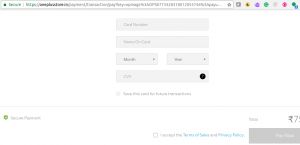
OnePlus Store Website recently got discovered to be hacked as a result of which credit card details of more than 40,000 customers have been stolen. In this post, you will learn about somee of the following: How the attack might have happened on/from OnePlus Checkout page? Who could be the hackers? How to prevent such attacks? Malicious Code Injection may have resulted into Hack Hacker might have hacked into the OnePlus website and injected malicious Javascript code in one of their javascript files which get loaded as a result of loading of checkout page. The following represent the screenshot of checkout page which is loaded from Onestore website. Look at …
Top 10 Global Bitcoin & Cryptocurrency Trading Platforms (2018)
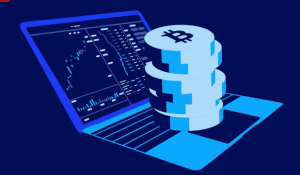
Every other person interested in cryptocurrencies is looking out for trusted and popular cryptocurrency trading/exchange platforms where he/she could trade or exchange digital currencies such as Bitcoin (BTC), Ethereum (ETH), Litecoin (LTC) etc. In this post, you are provided with the following list of digital currency exchange (in order of popularity) which is created based on Google Search trends. Please note that this list will be updated from time-to-time to maintain the data sanity. Feel free to suggest. Binance Coinbase – Enables buying and selling for Bitcoin (BTC), Ethereum (ETH), Litecoin (LTC) Bittrex – Supports trading of some of the following currencies: Bitcoin (BTC) Ubiq (UBQ) Litecoin (LTC) Blackcoin (BLK) …
Startups – Varo Money uses AI to Improve Customers Financial Health
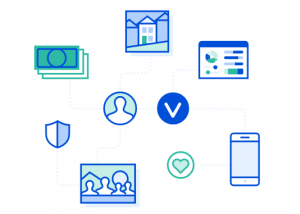
Varo Money, a fintech startup, is using AI (machine learning) along with mobile banking to improve customers’ financial health. It recently raised $45 million from a private equity giant, Warburg Pincus and The Rise Fund, a global impact fund. The following are some of the features of Varo Money product which looks to have been created using machine learning algorithms/techniques. Predict cashflow projections for informed spending: This is one of the key features of Varo Money AI-powered product. A supervised learning problem which could be solved using multilinear regression analysis. The underlying machine learning model could take into account some of the following features to predict the cashflow in near …
Cryptocurrency – Technology behind Ledger Hardware Wallet Blue

Ledger, a french cryptocurrency start-up has raised $75 million for taking their hardware wallets for securing storage and transactions of cryptocurrencies around the world, and, also invest further in research and development programs. The primary goal of these hardware wallets is to store the cryptocurrency such as bitcoin and ethereum holdings offline to remove the risk of being hacked. The following are couple of products by ledger in relation to securely storing and transacting cryptocurrencies: Ledger Blue (Bitcoins) Ledger Nano S (Bitcoin, ethereum, litecoin and other blockchain-based cryptocurrencies) In this post, you will learn about the technology behind Ledger’s Hardware Wallet product, namely, Ledger Wallet Blue. In one of the …
Angular – Http, HttpClient Get API Example with Observable

Observable is one of the most important aspect of reactive programming paradigm which represents the data streams such as variables, user inputs, properties, caches, data structures, server responses etc.. These data streams (or Observable) are listened/observed (you may also read subscribe) in asynchronous manner and reacted appropriately as per the application requirement. Observable emits the following three class of outputs which can be processed asynchronously: Value Error Completion status Different functions can be used to process above mentioned different types of outputs emitted by observable. In this post, we will see the usage of subscribe method to process the value emitted by Observable. On the lighter note, the following comic …
Understanding Ethereum – Top 10+ Free Web Resources (Books, PDFs)
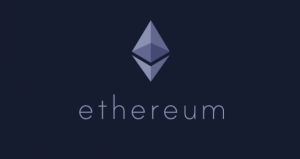
Ethereum is a Blockchain app platform that maintains a secure decentralized generalized transaction ledger and runs smart contracts. Smart contracts are, primarily, apps/programs which run on decentralized network and carry out transactions (manipulate digital unit of value) based on pre-defined contracts. Understanding Ethereum is key for blockchain developers as it has become a shared global infrastructure for moving value around and representing the ownership of property with the help of smart contracts. In this post, you will get some good URLs/links to pages (or PDFs) on the internet which provides good read/help docs for understanding Ethereum and get started with it in an easy manner. Ethereum Website Help Documentation: Provides detailed information on Ethereum. Right from the horses’ mouth …
Angular – Promise Explained with Code Example
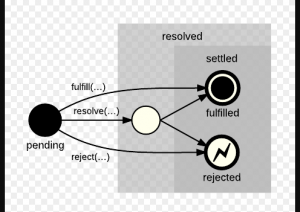
Promise, in Javascript, is a concept which allows the callee function to send back a promise (sort of assurance) to the caller function that it would, for sure, send back a resolution, be it a success or a failure at a little later point of time. The caller believes the callee if a promise is sent back, and, proceeds ahead with the program execution. On a lighter note, the following comic strip represents the relationship between the caller and callee. As like the below, caller function can believe on callee function sending back Javascript promise object, which does result in the state of either resolution or a rejection (in case …
Single Responsibility Principle with Java Code Example
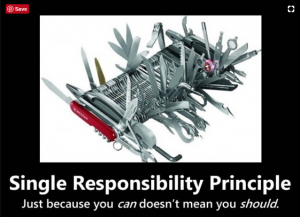
Single Responsibility Principle (SRP) is one of the most important object-oriented coding principle which, if followed religiously, can help you write a very good quality code. Here is what SRP states: A block code representing class or method should have just one reason to change In other words, Single Responsibility Principle can be stated as the following: A block of code representing class or a method should do just one thing and do it very well In yet another words, SRP can also be stated as the following: A block of code representing class or method should have just one responsibility or serve just one functionality Pictorially, decide for yourself …
Angular – HttpClient Get API Code Example with Promise

Angular HttpClient got recently released in Angular 4 (later versions) and then formalized in Angular 5. Going forward, Angular recommends usage of HttpClient for communicating with backend services over the HTTP protocol. Before getting started, on a lighter note, check out this comic strip on Promise. :). In Javascript, Promises are either resolved or rejected. In other words, Promise always transition from state of pending to resolution or reject. In this post, you will learn some of the following: How to use HttpClient Get API and Promise Processing Response with HttpCient Get API made to return Promise Sample Interview Questions How to use HttpClient Get API and Promise The code given below represents usage of …
Angular – Http Get API Code Example with Promise

Promise, in Javascript, allows an asynchronous operation to happen in the sense that caller function getting promise object returned by callee function proceeds ahead with the program execution. And, upon the return of promise object, the processing continues. The Promise concept can be used with Angular Http service to achieve asynchronous data retrieval from the server using GET API. The code example in this article applies to both Angular 2 and Angular 4. On the lighter side, here is a comic strip on whether Promises are kept or not :). In Javascript, promises go from state of “pending” to “resolution” or “rejection”. In this post, you will learn about some of the following …
How to Install Hyperledger Explorer & Access Fabric Network
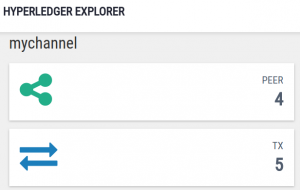
Hyperledgder Explorer is a Blockchain explorer which can be used to view the details on the one or more blockchain network (channels) created using Hyperledger Fabric 1.0. In this post, you will learn about some of the following: Introduction to Hyperledger Explorer App Installation/Setup of Hyperledger Explorer Configure hyperledger explorer for the first network Starting the Explorer App Introduction to Hyperledger Explorer App Hyperledger Explorer is a Nodejs based web app which runs on Node/ExpressJS with MySQL as the backend database. It provides details related Fabric blockchain network (channels) based on configuration provided in the file, blockchain_explorer/config.json. The following represents some of the key details provided by the explorer app vis-a-vis …
Kubernetes – Cheatsheet of Commands for Namespaces
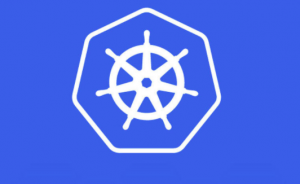
Kubernetes namespaces represents virtual clusters (logical entity with a unique name) created out of same physical cluster to enable allocation or split of cluster resources to different group of users. Namespaces are, primarily, used for managing cluster resources across dev/test/production environments by attaching different level of authorization controls and policies to different sections of cluster resources. In simpler words, it allows to create a community of users (developers, testers, production ops) in relation to some of the following: Cluster resources available for usage (pods, services, deployments, replication controllers etc) Who could do what with available cluster resources (policies) Number of resources that could be used by the community (quotas) This post …
Learn to Create Hyperledger Fabric Blockchain with byfn.sh – Part 1
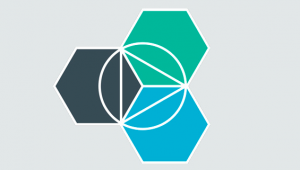
Hyperledger Fabric comes up with a script namely byfn.sh which can be used to Build Your First Network (byfn). Hyperledger Fabric script, byfn.sh (found in folder fabric-samples/first-network), can be used to build your first Hyperledger Fabric permissioned blockchain network. As I went about writing the post, it got much longer. Thus, I have split the post into two parts. In the first part, you will learn about some of the following: A quick introduction to some of the following: Installation pre-requisites before getting started with byfn.sh execution Initial configuration prior to executing byfn.sh How to go about executing byfn.sh Deep dive into byfn.sh execution to learn key aspects of building a permissioned blockchain network such …
Quantum Computing – Two Ways to Install QISKit on Linux
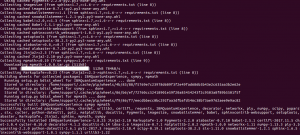
This article represents different ways in which you can go about installing Quantum Information Science Kit (QISKit) on Linux and related distros such as Ubuntu. QISKit is software development kit (SDK) for writing quantum computing experiments, programs, and applications. In this post, you will learn about some of the following topics in relation to installing QISKit on Linux: Install QISKit using PIP Install QISKit from Github repository Install QISKit using PIP You can go about installing QISKit using PIP, a Package manager for installing python libraries. The catch here is the requirement of using Python 3.5. or later. Often, we have python 2.7. setup as a default python alternative for …
Angular – How to Prevent XSS Attacks – Code Examples
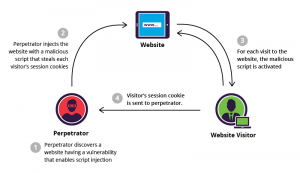
This article represents concepts and related instructions, code example/sample in relation to Cross-site scripting (XSS) security vulnerabilities in Angular app and how to prevent XSS attacks. This instruction in this article is valid for Angular 5.* and Angular 4.* versions. Before we get started, read the related details on XSS on this page, Top 10 Angular security Best Practices. This article will look into some of the following details in relation to XSS vulnerability and how attacks due to XSS can be prevented using Angular out-of-the-box utilities. What is Cross-site Scripting (XSS) Attack? Different types of XSS Vulnerabilities Angular approach to prevent XSS attacks Angular recommendations to prevent Server XSS …
Quantum Computing – How to Install QISKit using PIP
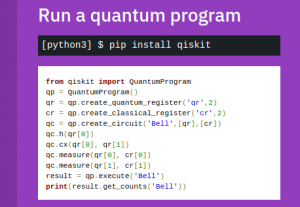
This article represents instructions and related concepts on how to install QISKit (Quantum Information Science Kit) using PIP. As per Wikipedia Page on PIP, PIP is a package management system used to install and manage software packages written in Python. This article assumes that you are working with Linux distributions (distros) OS such as Ubuntu etc. The following topics are discussed in this article: What is QISKit Install Python PIP Install QISKit using PIP Install Command Test First Quantum program What is QISKit? QISKit is a software development kit (SDK) comprising of Python-based software libraries that can be used to create quantum computing programs, compile them, and execute them on one of …

I found it very helpful. However the differences are not too understandable for me